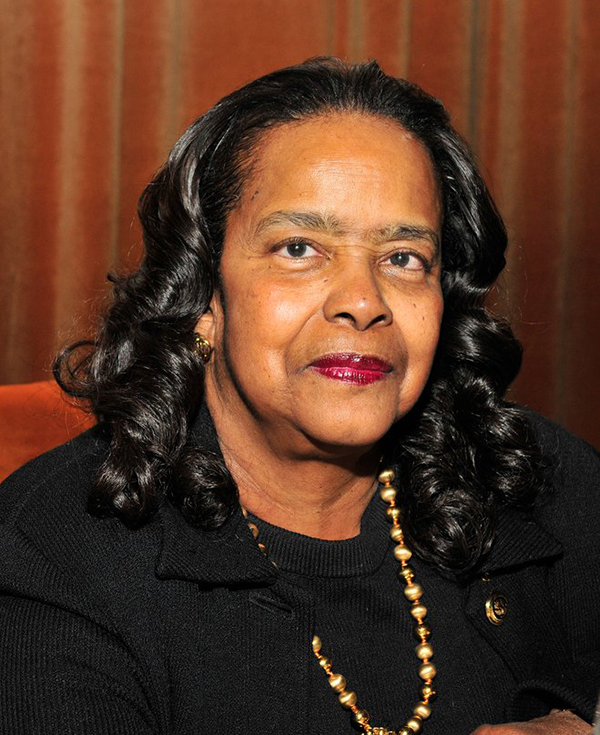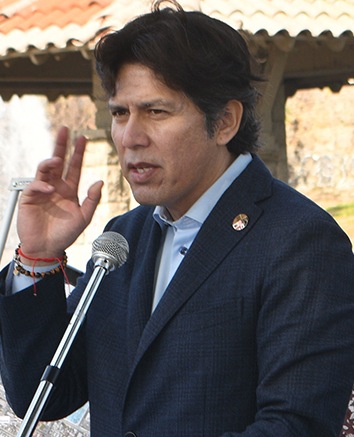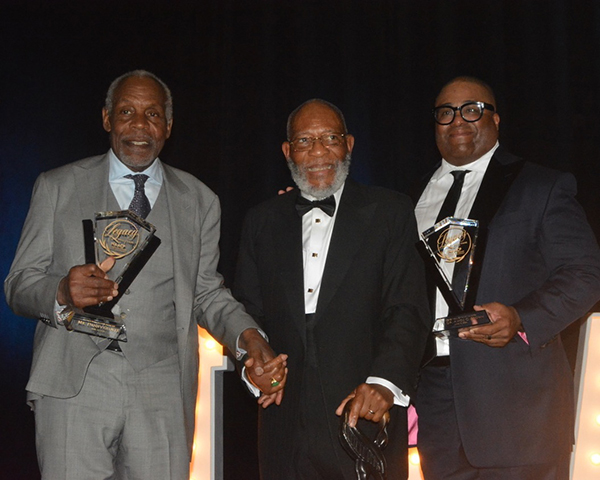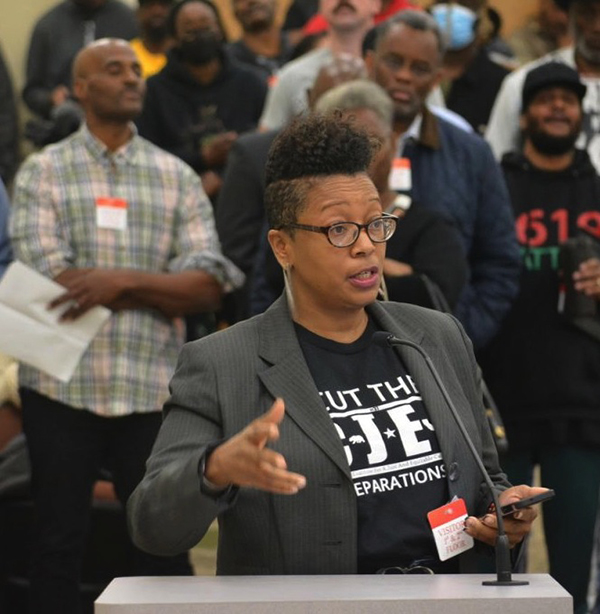By Shirley Hawkins, Contributing Writer
SOUTH LOS ANGELES — Gwen Moore, who served South Los Angeles in the state Assembly for 16 years from 1978 to 1994, has died. Moore died Aug. 19 at the age of 79.
During her tenure in the Assembly, Moore introdcued more than 400 bills that were signed into law. She also served as majority whip and was a member of a number of influential committees, including the Assembly Utilities and Commerce Committee.
Moore was the architect and political force behind California General Order 156, a state supplier diversity program that has, over the years, strengthened and stabilized a number of Black- and other minority-owned small businesses by helping them secure lucrative state contracts.
She left the Assembly to run for secretary of state in 1994. After losing that race, she became the founder and chief executive officer of Los Angeles-based GeM Communications Group.
She became a sought-after consultant and worked with several prominent clients across the state.
Jackie Hawthorne, a longtime friend, met Moore in 1991 when she co-founded and advised President Celestine Palmer of the Los Angeles African American Women’s Political Action Committee, an organization founded to help young Black women interested in pursuing careers in politics.
“Gwen and I talked on the phone the day before she passed,” Hawthorne said. “We talked about the Democrataic convention and getting Kamala Harris and Joe Biden elected in November.
“The next morning, I got a call from a close friend who said that Gwen was gone. I felt like someone had punched me in the stomach. My mind couldn’t wrap my mind around it.
“She was a good friend and a caring and loving individual,” Hawthorne added.
Moore was born in Dallas, Texas, and moved with her family to Los Angeles when she was 5. She attended Manual Arts High School and received her bachelor’s degree from UCLA and her master’s degree and a teaching credential from USC.
Before going into politics, Moore worked as a school teacher and then joined the L.A. County Probation Department, where she worked in juvenile probation.
She also served as the director of public affairs followed by a stint as the director of personnel with a community action agency in Los Angeles. She also taught at the community college level. In the mid-1970s, she decided to enter the political arena, and won a seat as a member of the Los Angeles Community College District Board of Trustees in 1975.
Three years later she ran for and won a seat in the state Assembly.
She was active in the National Conference of State Legislatures, serving as both chair of the State-Federal Assembly and the Assembly on the Legislature — the two major components of the organization. She also chaired its National Committee on Telecommunications and Transportation. Her national stature and as author of landmark legislation she was a frequent witness before Congress regarding telecommunications, utilities and minority business.
In the Assembly, Moore developed legislative and political strategies on a variety of issues encompassing diversity in procurement, taxation and international trade, consumer affairs, business and labor issues and consumer protection.
Condolences from colleagues and associates poured in at the time of Moore’s death.
“I am deeply saddened to learn of the passing of my former colleague, Gwen Moore,” said Rep. Maxine Waters in a statement. “I served in the California Assembly with Gwen under the leadership of Willie Brown, where we were able to advance, along with other members of the Black Caucus, important legislation dealing with the Free South Africa Movement, promoting affirmative action, increasing opportunities for women- and minority-owned businesses, and opening opportunities for minority asset managers to manage our vast employee pension funds and teachers’ retirement funds.
“Together, we made significant advancements in support of children, poor people and veterans,” Waters said.
Rep. Karen Bass also reflected on Moore.
“One of the first jobs I ever had was working for Mrs. Moore when she served as personnel director for the Greater Los Angeles Community Action Agency,” Bass said on Facebook. “In that role, I got to see firsthand the work she did on behalf of our community. Throughout her career of service, that work never ceased.
“When I became Speaker of the Assembly, I appointed her to the California State Bar Board of Trustees, where she served for many years. She also served on the Small Business Association board and was known nationally for the work she did on the board of the NAACP.
“I am better because of her friendship and her mentorship,” Bass added. “Our community, our state and our country are better because of her work. Her joyous laugh and her big heart will be most missed.”
Alice Huffman, faith conference president of the NAACP, knew Moore for 30 years.
“She was a person who we all relied on,” Huffman said. “Nobody could ask her for a favor that she wouldn’t do. She was very generous with her time and her resources.”
Former county Supervisor Yvonne Brathwaite Burke, who knew Moore more than 40 years, said “She was caring and a hard worker She also represented the utility companies and she advised them on federal, state and local issues through her public relations company.
“Her greatest strength was organizing people in order to promote them in the political arena. She will be sorely missed.”
Former Rep. Dianne Watson said, “Gwen was a very alert and smart person, very bright, but she was quiet. She was a deep thinker and always had the right way of thinking about situations.
Alice Huffman, faith conference president of the NAACP who knew Moore for 30 years.
Joy Atkinson, Moore’s former chief of staff, said, “Gwen wanted to help everybody. She believed that for every problem there was a solution. Her main goal as an elected official was to create good public policy and she was a good friend and a caring and loving individual.”
Celestine Palmer, a former president of the Los Angeles African American Women’s Political Action Committee, said, “She was always giving us advice and helping us to reach out and support women across the country who were in politics, like Carol Moseley Braun. As a person, Gwen was a true friend.”
Supervisor Mark Ridley-Thomas said, “Gwen leaves a legacy that will be remembered for her principled stands on tough issues, her belief in the good in mankind, for fighting racial injustice, and much more. I’m thankful to have had the opportunity to serve with her.”
Moore is survived by her husband, Ronald Dobson, Sr., her son, Ronald Dobson, Jr.; and grandchildren Ronald III (Trey) and Cameron.













